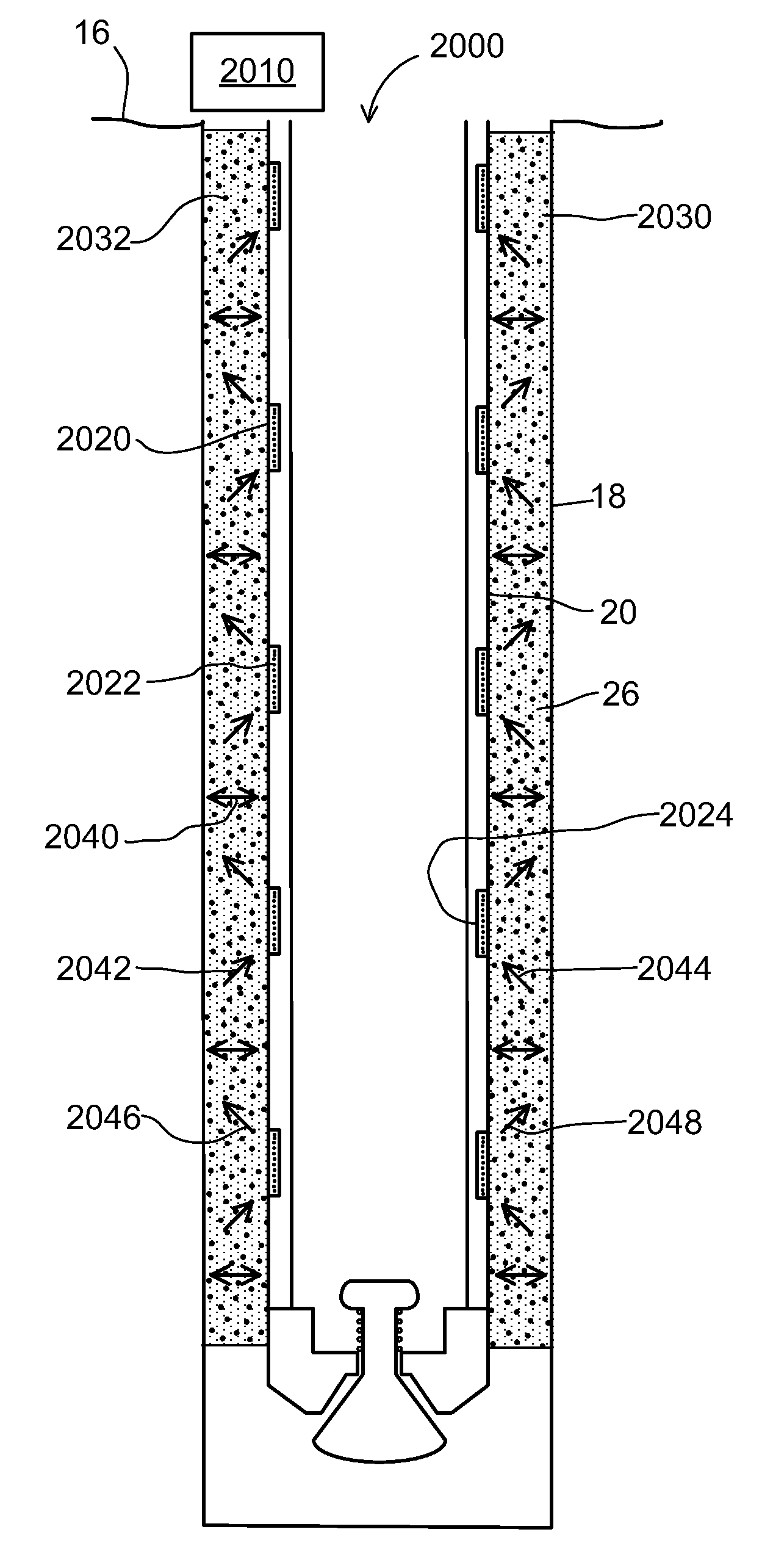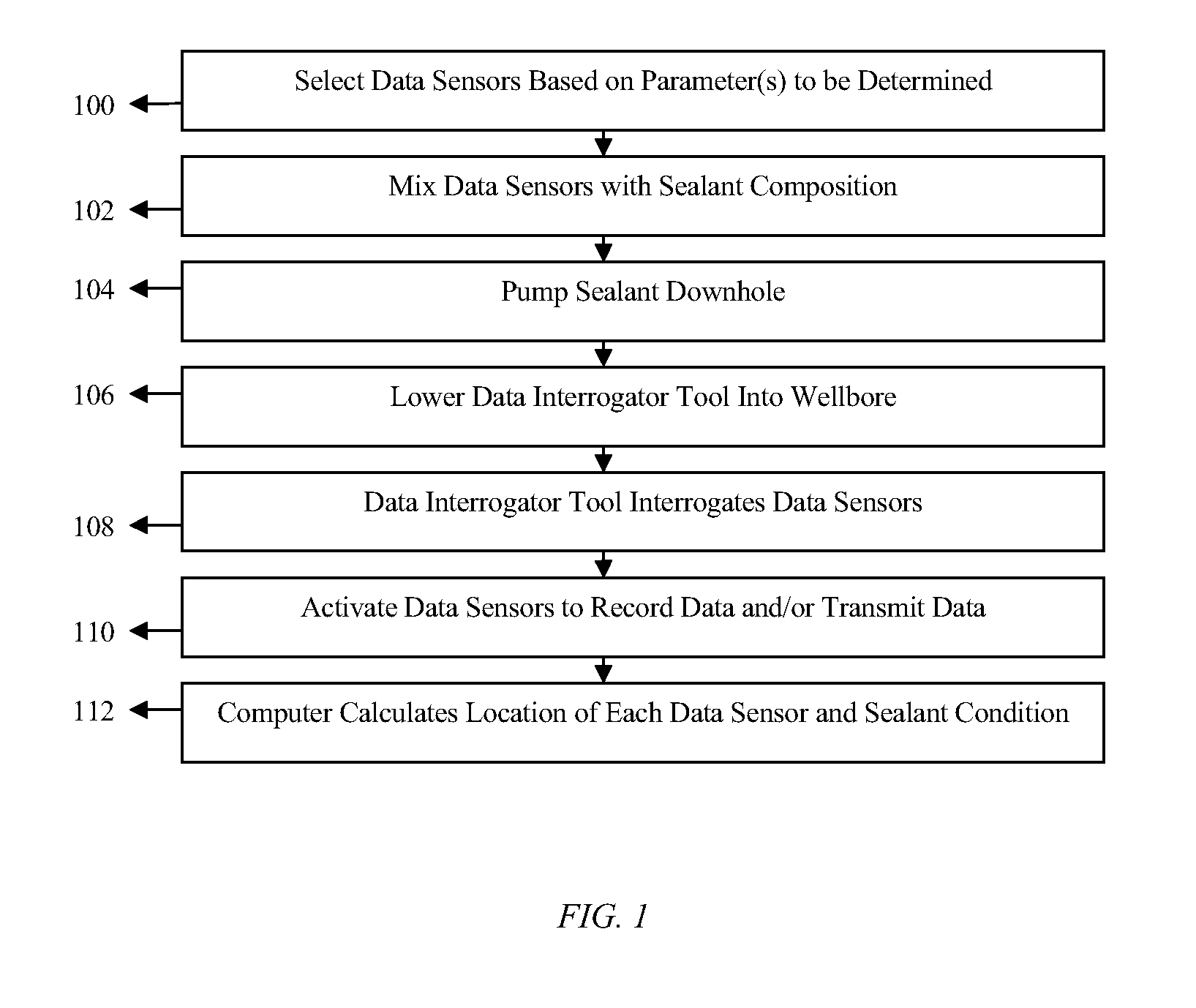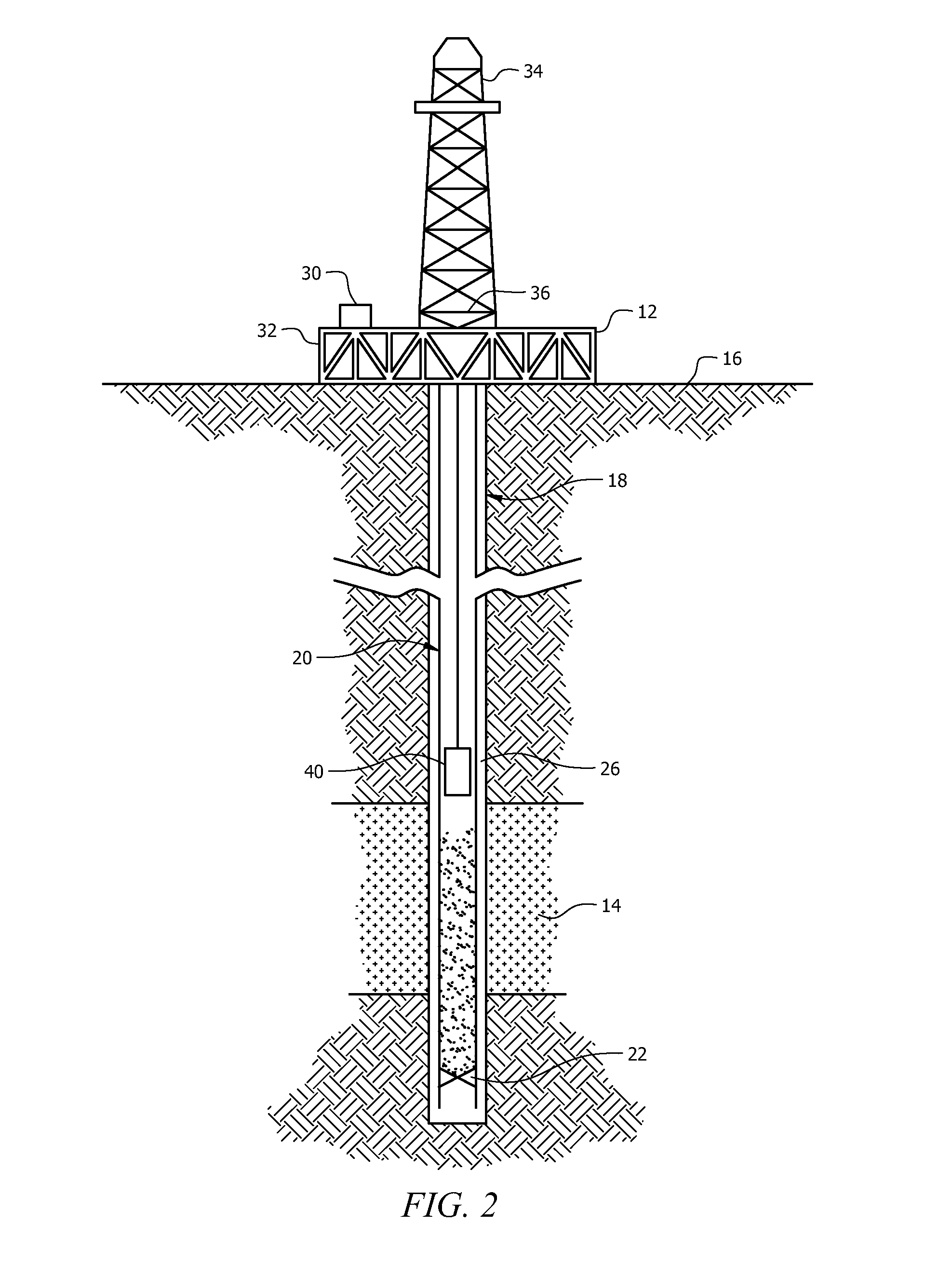Use of Micro-Electro-Mechanical Systems (MEMS) in Well Treatments
a micro-electromechanical system and well technology, applied in the direction of survey, borehole/well accessories, construction, etc., can solve the problems of degrading cement, adversely affecting the integrity of sealant, and undesirable for use in the wellbore environmen
- Summary
- Abstract
- Description
- Claims
- Application Information
AI Technical Summary
Benefits of technology
Problems solved by technology
Method used
Image
Examples
Embodiment Construction
[0041]Disclosed herein are methods for detecting and / or monitoring the position and / or condition of a wellbore, a formation, a wellbore service tool, and / or wellbore compositions, for example wellbore sealants such as cement, using MEMS-based data sensors. Still more particularly, the present disclosure describes methods of monitoring the integrity and performance of wellbore compositions over the life of the well using MEMS-based data sensors. Performance may be indicated by changes, for example, in various parameters, including, but not limited to, moisture content, temperature, pH, and various ion concentrations (e.g., sodium, chloride, and potassium ions) of the cement. In embodiments, the methods comprise the use of embeddable data sensors capable of detecting parameters in a wellbore composition, for example a sealant such as cement. In embodiments, the methods provide for evaluation of sealant during mixing, placement, and / or curing of the sealant within the wellbore. In anot...
PUM
 Login to View More
Login to View More Abstract
Description
Claims
Application Information
 Login to View More
Login to View More - R&D
- Intellectual Property
- Life Sciences
- Materials
- Tech Scout
- Unparalleled Data Quality
- Higher Quality Content
- 60% Fewer Hallucinations
Browse by: Latest US Patents, China's latest patents, Technical Efficacy Thesaurus, Application Domain, Technology Topic, Popular Technical Reports.
© 2025 PatSnap. All rights reserved.Legal|Privacy policy|Modern Slavery Act Transparency Statement|Sitemap|About US| Contact US: help@patsnap.com



